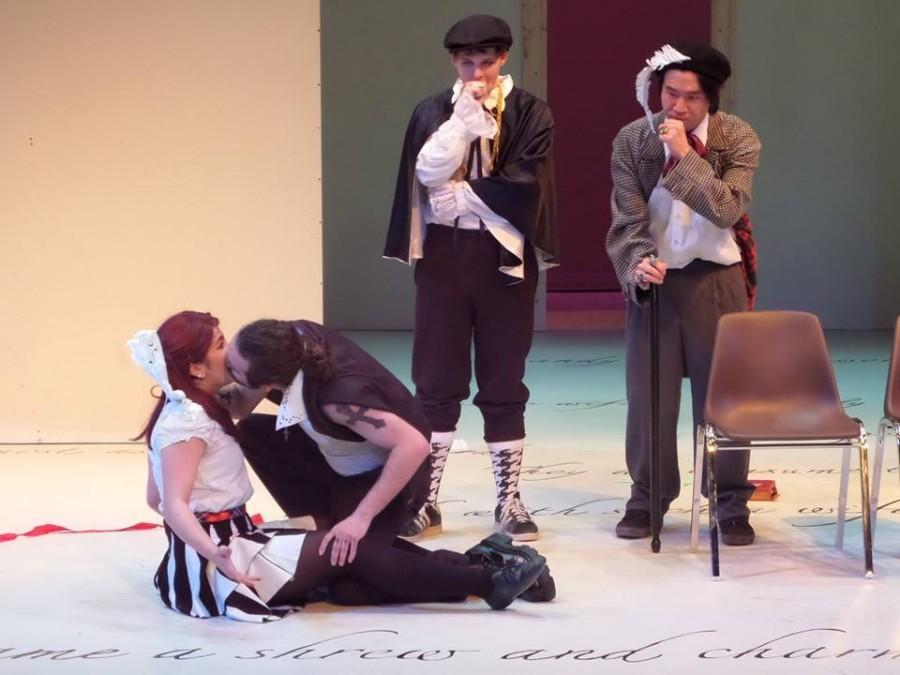Thou shalt tame this ‘shrew’
Cast of “The Taming of the Shrew” perform on opening night.
February 3, 2015
Three odd couples, one big twist and a lot of laughs made opening night of “The Taming of the Shrew” a success.
Written by William Shakespeare and directed by Kathleen Normington, the play uses the courtship of two wealthy daughters to explore the power struggle and politics of 16th century marriage.
Kate, played by Farah Dinga, is a wealthy daughter in need of a husband. Her sister Bianca (Lauren Prochazka) is lovely and popular with suitors, but Kate is frightening and prone to physically attacking people.
At least through the first half this really is the sisters’ play, focusing on their often violent relationship and the different attention each receives from suitors.
The play is performed in Shakespearean English which (at least for this reviewer) took some time to get used to. It was cool hearing the cast nail a language so tricky to read, and even trickier to pronounce.
“I think it was a much stronger opening that we may have been anticipating, and I hope the rest of the run goes just as well,” said Han-Joo Kim, who plays a very old old-man in suitor Gremio.
While every character got a few good laughs (and Petruchio’s wedding costume received the loudest) it was probably the servant Grumio, played by Sylvette Teman, who received the most laughter. Teman, who has a strange gift for making eating look funny, had the audience rocking nearly every time she moved.
The 16th century costumes, which featured poofy hats, poofy pants and poofy sleeves were cool too. Petruchio and Grumio also had those outer crotch-straps that always seem to pop up in these sort of things.
But that aside, the most interesting part of the play was watching the relationship between Kate and her new husband Petruchio (Jeremy Dorado) develop. Though Kate is a shrew, her husband is no pushover either.
Opposing her at nearly every turn with lies, brainwashing and starvation it’s not clear if Petruchio really is a master woman-tamer, or if his corkiness just charms Kate into love.
Perhaps the play’s most famous scene, and easily it’s most controversial, is the infamous “wife obedience test” put on by the three newly married husbands.
“It’s a really feminist play, but it always ends with the real misogynistic ending,” Dorado says. “The play is about finding someone you can be honest with and negotiate with and love truly. “It’s kind of hard to get that across in some editions because it’s like ‘how do you play that final monologue?’”
Normington chose to switch the genders in the contest, so that the female actors were the ones calling their spouses. It was an interesting twist, one that made a definitive stance on what that final scene meant for the characters.
“Taming of the Shrew” will be playing through Feb. 15. For more information visit the DVC drama website.







































































